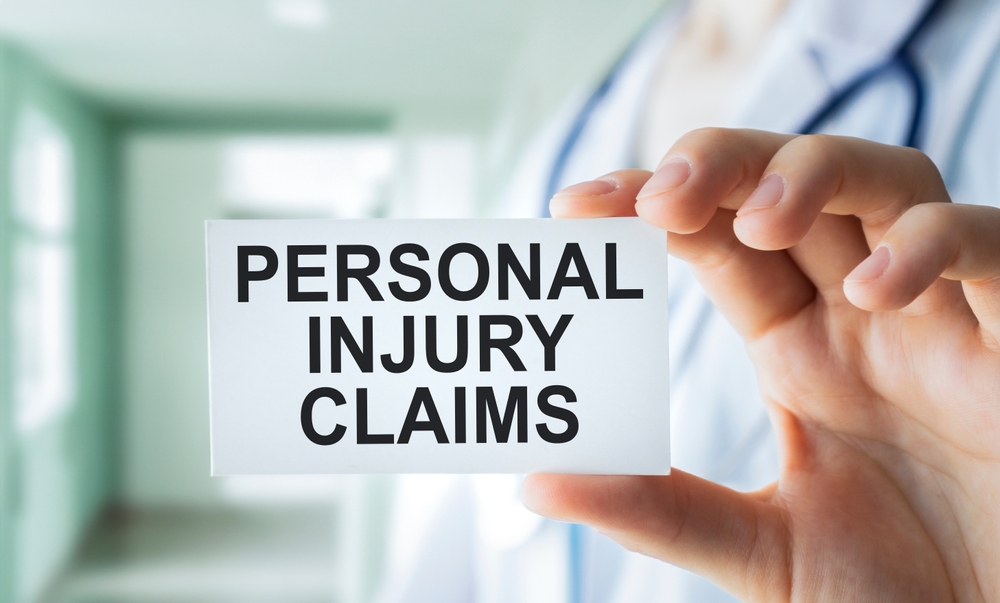
Millions of Americans visit emergency rooms each year for unintentional injuries. Many injured individuals fail to receive fair compensation, often because they lack experienced legal representation. The right personal injury lawyer can be the difference between a settlement that falls short and one that addresses your medical costs, future needs, and the life changes caused by your injury.
Whether you’re recovering from a car accident on I-20, a slip and fall at an Arlington shopping center, or any other injury caused by negligence, the attorney you choose determines your case’s outcome. Call Branch & Dhillon at (817) 533-3430 to discuss how experienced representation protects your rights.
Why Your Choice of Personal Injury Attorney Matters
The legal landscape surrounding personal injury claims grows more complex each year, with insurance companies employing sophisticated tactics to minimize payouts. The attorney you choose influences every stage of your case, from the first investigation to the final settlement or verdict.
The High Stakes of Personal Injury Claims
Personal injury cases encompass far more than immediate medical bills, taking into account all types of damages, including future treatment needs, lost earning potential, and changes to your overall quality of life. According to recent National Safety Council data, the average economic cost of a disabling injury exceeds $167,000, and that figure does not even account for pain and suffering.
Insurance companies are well aware that most people underestimate the true value of their claims, making quick settlement offers that may appear generous but often fall far short of meeting actual needs. An experienced personal injury lawyer understands these tactics and works to secure compensation for the immediate and long-term effects of your injuries.
How Inexperienced Attorneys Hurt Your Case
Selecting an attorney without focused experience in personal injury law can have a significant impact on the outcome of your case. Lawyers who lack this specialized background may miss critical deadlines, fail to identify all liable parties, or be without the network of medical experts needed to substantiate your claims.
They may accept an initial settlement offer without recognizing its insufficiency or be hesitant to proceed to trial when negotiations stall. These shortcomings can mean losing compensation you need for recovery, long-term care, and restoring your quality of life.
Key Qualities to Look for in a Personal Injury Lawyer
Identifying the right attorney requires looking beyond flashy advertisements and focusing on qualities that directly impact case success. Understanding these characteristics helps narrow your search to lawyers who genuinely advocate for injured clients.
Track Record of Success in Similar Cases
When evaluating personal injury attorneys, a lawyer’s track record is often the clearest indicator of the results you can expect. Seek out those who routinely handle cases similar to yours and have secured substantial settlements or verdicts. During consultations, ask about recent outcomes in matters involving injuries like yours, including the amounts recovered and the time it took to resolve them.
Seasoned attorneys are typically forthcoming in sharing success stories while still protecting client confidentiality, whereas those who offer vague responses or appear unfamiliar with your type of case may not have the experience needed to achieve the best possible result.
Trial Experience and Willingness to Fight
Although most personal injury cases are resolved through settlement, insurance companies often offer higher payouts when they know the attorney is fully prepared to take the case to trial if necessary. In many instances, cases that are trial-ready result in larger settlements, even if they never actually reach the courtroom.
When assessing an attorney’s trial experience, consider asking how many cases they have tried in the past five years, the percentage of their cases that proceed to trial versus those that settle, whether they can share examples of recent jury verdicts, and who will handle your trial if negotiations fail.
Resources to Build Strong Cases
Building a successful personal injury case requires both legal expertise and the resources to conduct a thorough investigation and present persuasive evidence. Established firms work with accident reconstruction specialists, medical experts, economic analysts, and investigators who help build stronger claims.
These firms typically cover the upfront costs of depositions, expert testimony, and evidence collection, expenses that many injured individuals would be unable to manage on their own. When meeting with potential attorneys, it is important to ask about the resources available to their team and how case-related expenses are handled.
Firms that lack sufficient resources may feel compelled to accept quick, lower-value settlements rather than pursuing the full compensation necessary for a client’s recovery and long-term security.
Warning Signs When Evaluating Personal Injury Attorneys

Recognizing red flags during attorney consultations saves time and prevents costly mistakes. Certain behaviors and practices indicate lawyers who prioritize their interests over clients’ needs.
Guarantees and Unrealistic Promises
Ethical attorneys avoid guaranteeing specific outcomes or promising exact settlement amounts during an initial consultation, as Texas law and professional ethics rules prohibit such assurances. Every personal injury case involves unique facts and challenges, making absolute predictions impossible.
Lawyers who boast about securing million-dollar settlements for every client or claim they have never lost a case may be signaling a lack of experience or integrity. In contrast, trustworthy attorneys provide an informed assessment based on similar cases, while making it clear that the ultimate result will depend on numerous factors outside anyone’s control.
High-Volume Settlement Mills
Some law firms function as settlement mills, managing thousands of cases while providing minimal individual attention to each client. Common warning signs include high-pressure tactics to sign a contract immediately, assigning most of the work to paralegals or junior attorneys, showing reluctance to discuss the possibility of going to trial, and offering standardized settlement amounts that fail to account for the severity of each injury.
These firms often focus on generating profit through sheer volume rather than pursuing the maximum recovery for each client, which can leave injured individuals with inadequate compensation after attorney fees and medical expenses are deducted.
Poor Communication Practices
Communication issues that appear during an initial consultation often become more pronounced after you hire an attorney. Warning signs include lawyers who seem rushed or distracted during meetings, fail to return calls within a reasonable timeframe, withhold direct contact information, or show little familiarity with your case details. An effective attorney stays accessible and responsive, providing clear communication and support whenever you have questions, not just at key decision points.
The Consultation Process: What to Expect and Ask
Initial consultations offer a valuable opportunity for you to assess an attorney’s qualifications while they evaluate the details of your case. By preparing in advance, you can make the most of this meeting and position yourself to make a more informed hiring decision.
Essential Questions for Your Personal Injury Lawyer
Arriving with well-thought-out questions can help you gain important insight into an attorney’s experience and working style. Consider asking about their background with cases similar to yours, expected timelines, communication policies and response times, fee structures and expense handling, and which team members will be directly involved in your representation.
If any answers seem vague or incomplete, ask for clarification. Attorneys with significant experience in personal injury law typically welcome thorough, detailed questions from potential clients.
Documents and Information to Bring
Providing relevant documentation allows the attorney to better assess your case and offer a more accurate evaluation. Useful materials include police or incident reports, medical records and billing statements, insurance policies and related correspondence, photographs of your injuries and the accident scene, and contact information for any witnesses.
Even if you do not have every item on this list, bring whatever you can. Most attorneys understand that gathering documentation can be challenging while you are focused on recovery.
Evaluating Attorney Responses
During the consultation, pay close attention to how the attorney addresses your questions and concerns. Look for detailed explanations that are specific to your circumstances, realistic assessments of your case’s strengths and potential challenges, and clear communication that avoids unnecessary legal jargon.
An attorney who demonstrates genuine interest in your recovery, in addition to the legal aspects of your claim, is more likely to provide effective representation. Ultimately, your comfort level with the attorney’s approach and demeanor is a key factor in deciding whether to move forward with them.
Understanding Personal Injury Lawyer Fee Structures in Texas

Concerns about legal fees often make injured individuals hesitant to seek quality representation. Gaining a clear understanding of how personal injury attorneys charge for their services can help reduce uncertainty and avoid unwelcome surprises later in the process.
How Contingency Fees Work in Personal Injury Cases
Most personal injury attorneys work on a contingency fee basis, meaning they receive payment only if they secure compensation for your case. In Texas, the Disciplinary Rules of Professional Conduct regulate contingency fees to protect clients.
Standard rates typically range from 33 to 40 percent of the recovery, depending on the complexity of the matter and whether the case proceeds to trial. This fee structure makes experienced legal representation accessible to clients regardless of their financial situation, while aligning the attorney’s interests with achieving the best possible outcome.
Understanding Case Expenses and How Costs Are Covered
In addition to attorney fees, personal injury cases often require expenses for investigations, expert witnesses, court filings, and depositions. Reputable firms generally advance these costs and recover them only if the case is successful.
During the consultation, it is important to discuss how expenses are handled, what happens if the case is unsuccessful, how costs will affect your net recovery, and whether the firm has the resources to fund significant case expenses. Some firms deduct costs before calculating their contingency fee, while others calculate the fee first, which can result in different amounts for the client’s final recovery.
Identifying Hidden Fees in Personal Injury Lawyer Contracts
Before signing any agreement, review the fee contract carefully for provisions that could reduce your recovery. Potential concerns include administrative charges beyond the contingency fee, requirements to reimburse expenses regardless of the case’s outcome, penalties for changing attorneys, and unclear definitions of what constitutes a “win.” Reputable attorneys walk you through the personal injury lawsuit process, explain all terms clearly and encourage clients to ask questions about the fee structure before proceeding.
How to Choose the Right Personal Injury Lawyer for Your Case
After consulting with several attorneys, your choice should be based on more than just personality or convenience. Consider how each attorney’s approach, experience, and resources align with your specific needs and the goals for your case.
Trust Your Instincts When Hiring a Personal Injury Lawyer
While credentials and legal experience are essential, your comfort level with an attorney plays a critical role throughout the process. Personal injury cases can extend over many months or even years, requiring frequent communication about sensitive medical and financial details.
Choose an attorney you trust to handle your case with professionalism and to advocate strongly for your interests. If you sense any discomfort or doubt during consultations, trust your instincts and continue exploring other options.
The Benefits of Hiring a Local Arlington Personal Injury Attorney
An Arlington personal injury lawyer with regular experience in Tarrant County courts often holds advantages over attorneys from outside the area. Familiarity with local judges’ preferences, established relationships with court staff, and an understanding of jury tendencies can strengthen your case.
The State Bar of Texas offers tools for verifying an attorney’s credentials and disciplinary history. Local attorneys are also more likely to have insight into area-specific risks, from hazardous intersections to properties with a history of causing injuries.
FAQ for Personal Injury Lawyer
Contact a personal injury lawyer as quickly as possible after your injury, ideally within days of the incident. Early involvement allows attorneys to preserve evidence, interview witnesses while memories remain fresh, and prevent you from making statements that might harm your case.
Texas law provides a two-year statute of limitations for most personal injury claims, but waiting reduces your attorney’s ability to build the strongest possible case for maximum compensation.
Most personal injury lawyers work on contingency fees, meaning you pay nothing upfront and only pay attorney fees if they win your case. Reputable firms also advance case expenses like expert witness fees and court costs, recovering these only from successful settlements or verdicts. This arrangement allows anyone with a valid injury claim to access quality legal representation regardless of current financial situation.
Valid personal injury cases require showing that someone else’s negligence caused your injuries and resulting damages. Key elements include a duty of care owed to you, breach of that duty through negligent actions, direct causation between the negligence and your injuries, and measurable damages like medical bills or lost wages. Experienced attorneys evaluate these elements during free consultations to determine case viability.
Personal injury lawyers focus exclusively or primarily on representing injured victims, developing deep knowledge of injury law, insurance tactics, and medical issues. General practice attorneys handle various legal matters and may lack the specialized experience needed for complex injury cases. Personal injury attorneys maintain relationships with medical experts, understand injury valuations, and regularly negotiate with insurance companies, providing significant advantages over generalists.
Personal injury case timelines can vary widely depending on factors such as the severity of injuries, the clarity of liability, and the willingness of the insurance company to negotiate fairly. Straightforward cases may be resolved in a matter of months, while complex claims involving serious injuries or disputed liability can take years to conclude. Cases that proceed to trial often require an even longer commitment. Your personal injury attorney can provide a more tailored estimate based on the details of your situation.
Take the First Step Toward Justice and Full Compensation

The personal injury lawyer you choose can have a significant impact on whether you are able to secure the resources needed to move forward after your injury. At Branch & Dhillon, we draw on years of experience representing injured victims throughout Arlington and Tarrant County, blending aggressive advocacy with genuine compassion for what you are going through.
Our goal is to achieve results that address the full impact of your injuries, not just your immediate expenses. Because we work on a contingency fee basis, you pay nothing unless we win your case, which allows you to focus fully on your recovery while we manage the legal process.
Do not allow insurance companies to pressure you into accepting less than you may be entitled to. Contact Branch & Dhillon at (817) 533-3430 for a free consultation and take the first step toward rebuilding your life.

